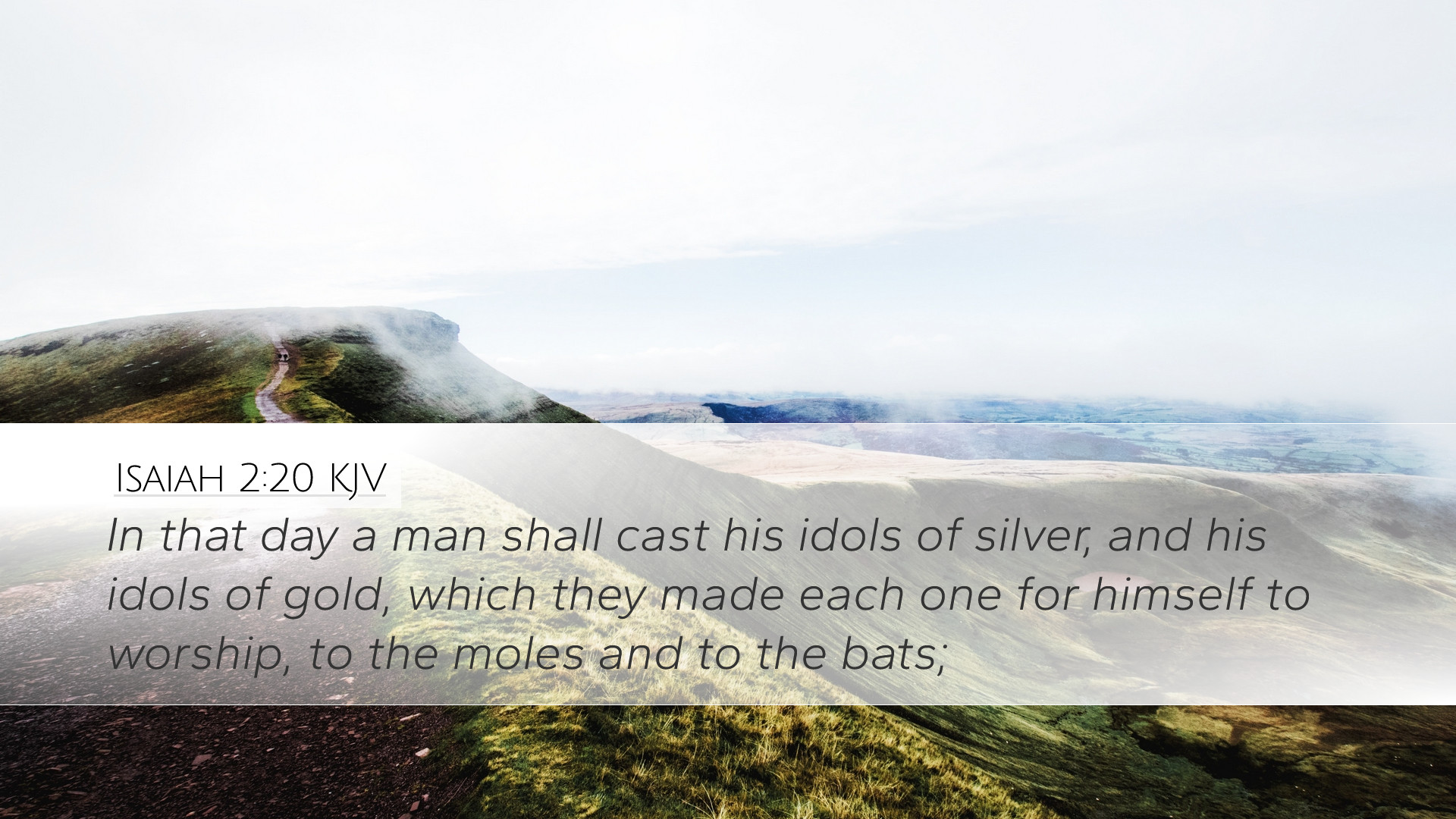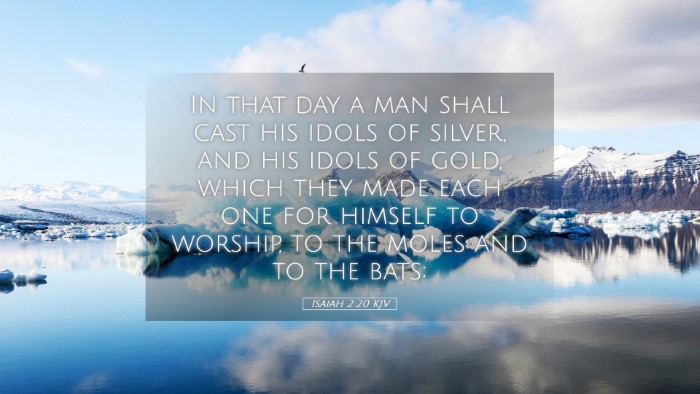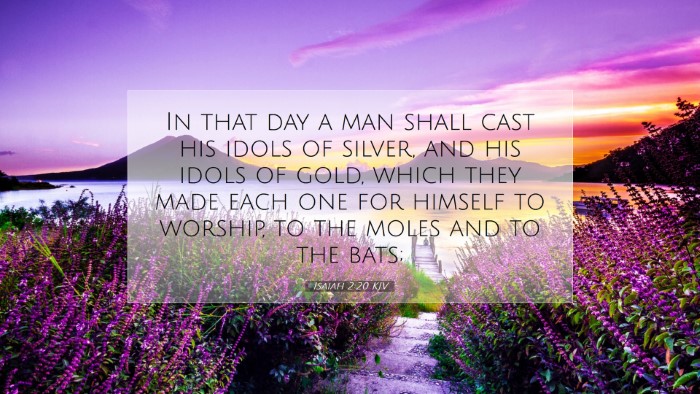Commentary on Isaiah 2:20
Isaiah 2:20 states, "In that day a man shall cast away his idols of silver and his idols of gold, which they made each one for himself to worship, to the moles and to the bats."
Context of the Prophecy
This verse is part of a larger prophetic discourse in Isaiah, which addresses the future judgment of Israel and the eventual exaltation of the Lord. Isaiah speaks about the idolatry and vanity that permeated the society of his time, positioning this prophecy against the backdrop of Israel's covenant unfaithfulness.
Idolatry and Its Consequences
The passage highlights the futile reliance on idols made of precious metals, which indicate both the wealth and the folly of those who worship created things rather than the Creator. Commentators note that these idols, despite their material value, are ultimately worthless in the face of divine judgment.
-
Matthew Henry remarks on the emptiness of idolatry: "Idols are merely the product of human imagination, reflecting man's desire to worship what is tangible."
-
Albert Barnes emphasizes the absurdity of creating gods from materials that humans themselves mine and forge, stating that this reflects a deep spiritual blindness and moral bankruptcy.
-
Adam Clarke discusses the cultural context, asserting that the practice of idol worship was deeply ingrained in the peoples surrounding Israel, leading to syncretism that diluted true worship.
Theological Implications
This verse serves as a stark reminder to both ancient and contemporary audiences about the dangers of idolatry. It affects not only individual hearts but also the corporate life of the community. Idolatry is a core theme of temptation, and its ramifications can lead to spiritual desolation.
Henry notes that true worship is an act of the heart and that the production of idols stems from disordered desires, indicating humanity's propensity to seek satisfaction in created rather than uncreated realities.
Barnes points out the prophetic nature of this verse, as it foreshadows the ultimate rejection of false gods when God's glory is fully revealed. He argues that when confronted with the holiness of God, all distractions and false securities will be abandoned.
The Day of the Lord
The "day" referenced in this verse is significant, often associated with a moment of divine visitation and judgment. The 'Day of the Lord' connotes a transformative time when the glory of God is revealed and all falsehood is exposed.
-
Matthew Henry states: "In that day, men shall awake from the delusions of idolatry and recognize their need for the Almighty."
-
Adam Clarke expresses that during this day, humanity will realize that their futile pursuits have led to spiritual blindness, reflecting a return to genuine worship.
Call to Genuine Worship
The act of casting away idols is a symbolic gesture that suggests repentance and a return to true worship. The transition from idolatry to the worship of Yahweh is a major theme throughout Isaiah, urging both individuals and Israel as a nation to reconsider their priorities.
Barnes also suggests that this casting away of idols denotes the recognition of their inability to save and the realization that worship must be aligned with truth and spirit. True worship is characterized by spirit-led devotion rather than mechanical rituals.
Conclusion
Isaiah 2:20 is a profound reminder of the perils of idolatry and the ultimate call to authentic worship. It challenges readers—pastors, students, theologians, and scholars alike—to reflect on their own lives for any idols that may distract them from full devotion to God. The promise represented in the casting away of idols affirms the hope of redemption and the possibility of renewed worship in purity and truth.


